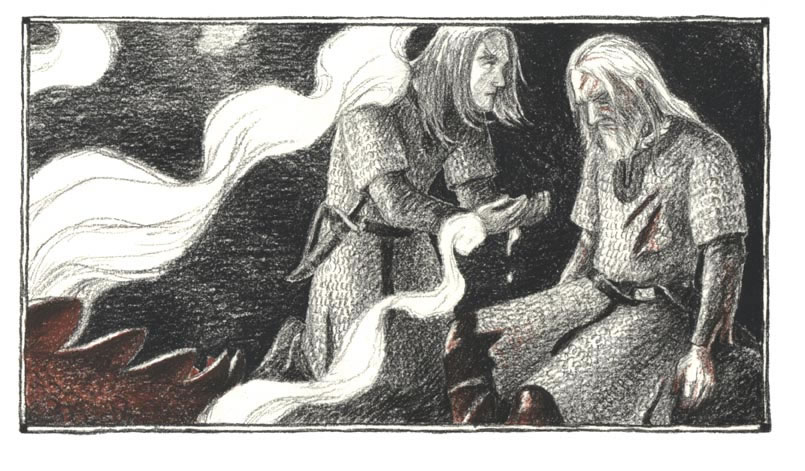Abstract
Translation
Translation Notes
A Few Words on the Moon
Closing
Back To Top
Introduction
I've chosen to spend the next three weeks with "O Fortuna" because of it's wide popularity, because of my own curiousity, and because I wanted to be clear on just what the lyrics are.
Although in the coming weeks I'll be back to my trusty pocket Latin dictionary, today's translation was done with the help of Google Translate and InterTran. Rather than just presenting a literal translation though, some parts have been embellished in an effort to keep something of a medieval feel.
Recordings of this poem will be posted, but not until all three stanzas have been translated and posted.
Back To Top
Abstract
Fortune's instability is bemoaned, and the extremity of bad fortune rather than that of good fortune is dwelt upon.
Back To Top
Translation
"Oh Dame Fortune, as variable of state as the moon,
Ever waxing, ever waning -
Ah execrable life - now firm, now full of cares,
A game for the sharp-minded,
Down in the depths of poverty -
As does ice you too often melt away."
("O Fortuna," 1st stanza)
Back To Top
Translation Notes
Along with moving the words of the poem from Medieval Latin to Modern English, I've also made some other changes to it as part of the translation. Some of these changes involve leaving things just as they are, while others involve me taking some poetic license with words or phrases. What follows is a general overview of these changes.
Literally, the second line reads "ever rising, or ever falling" ("semper crescis aut decrescis"). This literal translation captures the sense of a person's fortune rising or falling, using senses of those two verbs that are still commonly understood.
However, the above translation makes the case that the second line is supposed to describe the first line's simile further. The words "waxing" and "waning" are still used of the moon specifically, but their otherwise medieval flavour is one of the things done to keep the original medieval feel of the poem.
Punctuation is another thing that was altered.
In the version from Wikipedia, there's a comma after the first line, a semi-colon after the second, and a comma after the fourth and fifth. However, because the last line refers back to Fortune herself, everything from line three to line five has been put between em-dashes.
These em-dashes mark lines three to five as the diversion that they are. For these lines aren't about Fortune directly, but are about the wretched uncertainty of life under such a constantly shifting power.
Back To Top
A Few Words on the Moon
That the power of Fortune is represented by the moon shows that the poem's original composer had a sense being under such consistent inconsistency. Yet, although much of this stanza focuses on the ills of Fortune and of being on the bottom of her wheel, the fact that she uses a wheel does instill some hope; just as the moon will grow full and light the night after being absent.
Moreover, in addition to being linked with shifting Fortune, the moon was also associated with virginity in the medieval world. The two are connected in medieval thought because of the moon's classical association with the ever-virgin Roman goddess Diana.
This association with virginity may be working in "O Fortuna" to imply that Fortune is not only fickle and ever-changing, but also impossible to impregnate. That is, you cannot change Fortune from outside of Fortune, if you wanted to somehow alter your Fortune you would need to have some sort of "in" with Dame Fortune.
Back To Top
Closing
Come Thursday, Beowulf will give Wiglaf his penultimate command, and the young thane will run to the hoard to fulfil it.
Back To Top






